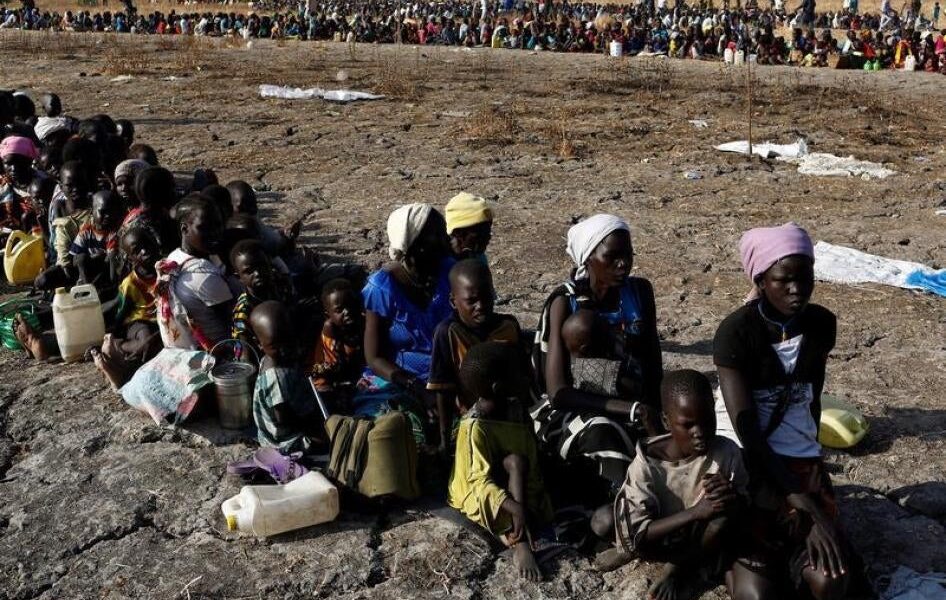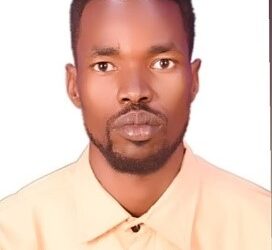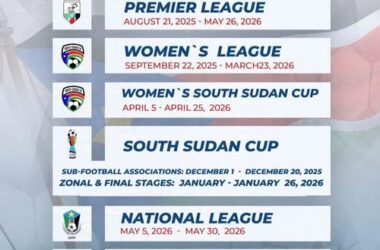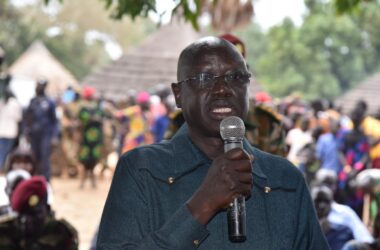By William Madouk
Chargé d’affaires of the Germany Embassy in South Sudan, attributes the biting hunger situation across the country to persistent insecurity.
“But coming to the context of South Sudan again, and again, lessons learned, why are people hungry? This country needs security,” Dr. Björn Niere noted.
Dr. Niere made the statement during a panel discussion on Food Systems in protracted crises – lessons and opportunities from South Sudan. The discussion was co-hosted by ministry of agriculture, Swiss Development Cooperation and Welthungerhilfe (WHH).
Dr. Björn Niere said that lack of security is the main obstacle to progress and development in South Sudan.
“The lack of it [security] is the main obstacle to progress and development in South Sudan. It is the responsibility of the government to ensure security for its people,” he added.
Deutsch envoy said government should create a civic space for its citizens to live up to their potential.
Dr. Niere hinted that South Sudan needs to adopt agroecology approach – a method that help farmers cope with climate change by enhancing resilience.
“We need to have a look at food systems that put people at the center and we need to ensure that people are at the center but we also need to respect the environment,”
These principles range from circular economy, input reduction, health, diversification but also to social issues like fairness, participation, co-creation of knowledge and societal values, The envoy said.
For instance, he stated in Germany there are lot of severe problem in overusing nitrogen fertilizers with harmful ecological effects as such input reduction was obligatory, but not in country like South Sudan that used a little.
In this case, input reduction, where it’s not applicable, it’s not applicable. I would like to stress that there’s no single intervention and there’s no set of interventions that will solve all the problems.
“But I think a concept like the concept of agroecology, which is based on principles, is a good approach,” he explained.
He called on the government to set standards, rules and regulations – that would lead to mutually beneficial relationships between and among producers [famers] and consumers.
“The comprehensive agricultural master plan and the national resource sector strategy under development are important elements,” Dr. Niere emphasised.
Meanwhile, during the discussion, the minister of Livestock and fisheries, Onyoti Adigo noted that Livestock is one of the root causes of intercommunal conflicts in the country.
The minister said should his docket get funding, he could reduce farmers-herders’ conflict by introducing zero-graze policy, transform livestock sector and make it more commercialize.
“The little thing which is causing insecurity is community conflict. And the community conflict is caused by my ministry, that is livestock! Livestock is a problem,” he admitted.
“But how do we solve it? We have mechanism of how to deal with it. If there is funding. We are thinking a lot to transform this livestock to become more commercialized,” he added.
He noted that creating zero grazing zone would minimize cattle migration that cause conflict between herders and farmers.
“So, when it becomes more commercialized, then we will be able to create zero grazing zone. Where there is no movement of cattle in the country,” he explained.
Mr. Onyoti also cited that he would transform dairy production since there is a huge potential of large- and small-scale milk processing for purpose of taping into export market.
“We will be able to produce either for beef or milk, which is not there now,” he lamented.
He hinted that instead of keeping cattle for prestige, dowry which of no beneficial use – it’s a time to commercial livestock for economic vibrant in the republic of South Sudan.
“We need to have a commercial livestock which is viable economically. The same thing with fish,”
“If this fish which is eaten here in Juba goes to Europe or Middle East. I think South Sudan will be one of the best countries with production of fish. Because we have the best fish (organic),” Adigo observed.
A recent report released by the World Bank reveals that South Sudan’s annual fish catch, estimated at 300,000 tons, owns the potential to make nearly $300 million from exports to the East African Community region.
The report further highlights that the livestock sector provides animal protein to roughly 50% of the South Sudanese population.
However, the report underscores that approximately 14% of the South Sudan fish catch is lost due to physical damage, while 24% spoils before reaching the market, necessitating sales at a lower price.
“Two-thirds of the potential fresh fish value of the catch is estimated to be lost domestically, despite lucrative export opportunities,” noted Stephen Ling, Lead Environment Specialist at the World Bank.
The report also indicates that South Sudan requires an investment of approximately $10-20 million over the next five years in the fisheries sector.
He explained that investment should focus on building community and government capacity, updating the Fisheries Bill, and developing a sector action plan centered on sustainable fisheries management.




